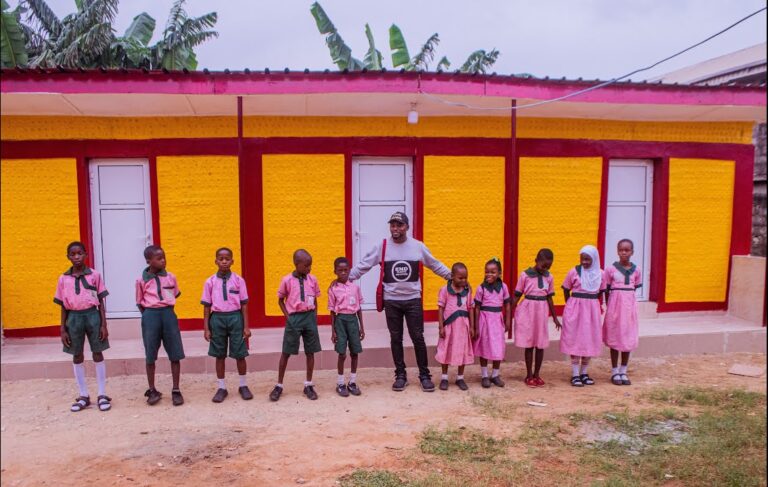A climate advocacy group – International Climate Change Development Initiative (ICCDI), has launched a plastic bottle toilet project across Nigeria’s six geo-political zones.
The project, which was recently launched in Lagos, seeks to tackle the critical environmental and public health issues bedevilling the country.
According to the Executive Director of the initiative, Olumide Idowu, the project, supported by the Canada Fund for Local Initiatives (CFLI), aims to reduce plastic waste by introducing innovative bottle toilets.
“Plastic pollution is rapidly becoming one of the most severe environmental issues of our time, with millions of plastic bottles ending up in landfills and oceans each year. Simultaneously, open defecation remains a significant public health crisis in Nigeria, leading to the spread of diseases and affecting the dignity and safety of individuals, particularly women and girls,” he said.
The 2024 Mismanaged Waste Index (MWI) by the World Population Review reveals that Nigeria’s mismanaged waste index is 99.44, with its status categorised as “very high.”
Nigeria generates 935,800 tonnes of plastic waste annually, out of which 930,624 tonnes are mismanaged. Plastic consumption per capita is 4.5 kg per year, while 960 tonnes of plastic waste are imported annually. Alarmingly, 27,685 tonnes of plastic waste end up in waterways annually, while 5,677 tonnes are linked to chemical additives.
Similarly, a staggering 48 million Nigerians have continued to engage in open defecation, according to the 2021 Water Sanitation and Hygiene National Outcome Routine Mapping (WASHNORM) report.
The plastic bottle toilet project therefore seeks to address environmental and public health issues by providing sustainable sanitation solutions while involving the community in climate action.
While the bottle toilet project is designed to engage and empower women and youth in Kano, Adamawa, Osun, Akwa Ibom, Enugu, and Niger State, it also aims to foster a sense of ownership and responsibility towards local environmental issues.
Idowu disclosed that participants will receive training on how to construct and maintain bottle toilets using recycled materials, noting that practical skills will promote sustainability and empower them with valuable knowledge to enhance their livelihood.
“The project will include awareness campaigns to educate community members about the benefits of reducing plastic waste and the importance of proper sanitation. These campaigns will be designed and executed by women and youth, ensuring that the messaging resonates with the local population. Women and youth would be encouraged to take on leadership roles within their communities, driving the message of climate action and sanitation solutions.
“The anticipated outcomes of this project are multifaceted and transformative: By repurposing plastic bottles into functional toilets, we aim to significantly reduce the amount of plastic waste in the environment. This innovative approach not only addresses waste management but also enhances community sanitation infrastructure. The introduction of bottled toilets will help combat open defecation, leading to improved sanitary conditions. This is particularly vital for women and girls, who often face increased risks of harassment and health issues due to a lack of safe sanitation facilities.
“By fostering a sense of community involvement and ownership, the project aims to build resilience against climate change. Women and youth equipped with knowledge and resources will be better positioned to advocate for sustainable practices in their communities.
“Nurturing these future leaders means investing in a generation that prioritises environmental sustainability and public health. Participants will also learn to construct and maintain plastic bottle toilets, they develop the potential to create small businesses around sanitation solutions. This not only provides economic benefits but also promotes a circular economy approach by utilising waste materials,” he explained.
The Executive Director of ICDDI further disclosed that 19 November, which coincides with World Toilet Day, has been designated as the date for the simultaneous commissioning of the projects across all six locations.
ICCDI had, on 18 July 2024, commissioned a six-unit toilet for the pupils and teachers of Ilasamaja Primary School in Lagos. The climate advocacy group now aims to replicate this facility across the country to combat the challenges of open defecation and plastic pollution in Nigeria.

